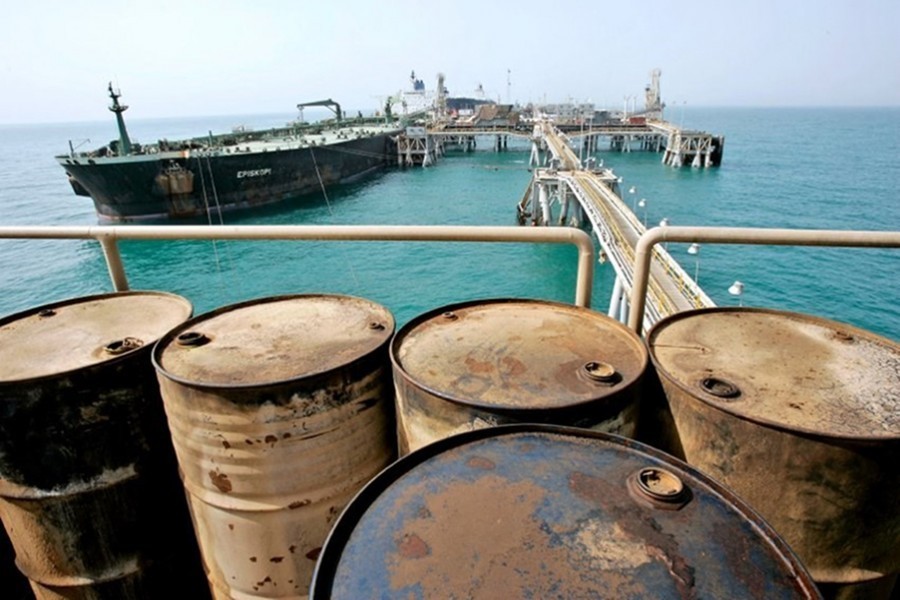
Published :
Updated :

State-run Bangladesh Petroleum Corporation (BPC) has sought use of force majeure provision with the global oil suppliers to avoid the 'demurrage' due to cancellation or deferment of cargoes over the past several months on coronavirus pandemic.
Force majeure is a common clause in contracts that frees both parties from liabilities or obligations when an unforeseen event such as war or epidemic occurs forcing either side to dishonour the sanctity of the deal.
"We wrote letters to implement the force majeure clause to a number of oil suppliers whose cargoes had to be cancelled or deferred due to lower than expected petroleum product demand since March," BPC chairman Shamsur Rahman told the FE on Wednesday.
He said the issue might be settled through bilateral negotiation.
The BPC had to cancel or defer 17 oil cargoes from April to July due to lower oil demand and shortage of storage constraints.
Each cargo vessel has the capacity to carry an estimated 30,000 tonnes of oil products.
The corporation had to shut operations of the country's lone crude oil refinery in June due to oil storage shortage.
As a consequence, the BPC had to cancel a 100,000-tonne Murban crude oil term cargo from Abu Dhabi National Oil Company in June.
The BPC, however, tried to increase its oil storage facility to avoid cancellation or deferment of oil cargoes from global suppliers.
Its plan to rent private sector storage facilities fell through.
The state-run corporation had planned to store as much oil as it can to benefit from the oil price crash in the international market.
The BPC has initiated the process to get private tankers on a rental basis for four months.
"If we could get the tanks, it could be more beneficial," said BPC director for operations and planning Syed Mahdi Hasan.
Despite repeated attempts to ensure oil storage facility from the private sector, it could not ensure a single facility.
Officials said four private companies - United Group, Super Petrochemical, SA Corporation and TK Group - showed interest to store the BPC's petroleum products in their facilities on a rental basis, although proposals were sent to nine firms.
But the state-run corporation could not use the tanks of four interested firms, as those were not ready for storage as per international standards. Besides, the rates they offered were exorbitant.
United Group offered to store oil at Tk 250 per tonne a month, Super Petrochemical at Tk 400, and SA Corporation at Tk 550.
For its lowest offer, the BPC was interested in using United's storage, and subsequently got approval from the Energy and Mineral Resources Division.
But despite several reminders, the company could not prepare its storage facility until now, officials alleged.
Currently, the BPC has a total storage capacity of 1.32 million tonnes of oil products, which include diesel, furnace oil, petrol, octane, kerosene, bitumen, condensate and crude oil.
But due to lower petroleum consumption during the general shutdown from March 26 to May 30 along with subsequent limited office and commercial operations, the BPC's oil tanks were almost full.
The corporation is the sole importer of petroleum products in the country, except high sulfur fuel oil, and usually imports around 6.0 million tonnes annually, including 1.4 million tonnes of crude oil.
BPC currently imports petroleum products from around a dozen of global suppliers including Saudi Aramco, PETCO Trading Labuan Company Limited (PTLCL) and Emirates National Oil Company (Singapore) Pte. Ltd. and Unipec Singapore.
Despite a fall in consumption of oil products, the BPC is counting profit, riding on the slump in global oil prices due to spread of the COVID-19 pandemic.
The price of Brent crude, the benchmark in international oil price, now hovers around US$46 per barrel as of July 22. It was above $70 per barrel on January 07.
Azizjst@yahoo.com


 For all latest news, follow The Financial Express Google News channel.
For all latest news, follow The Financial Express Google News channel.